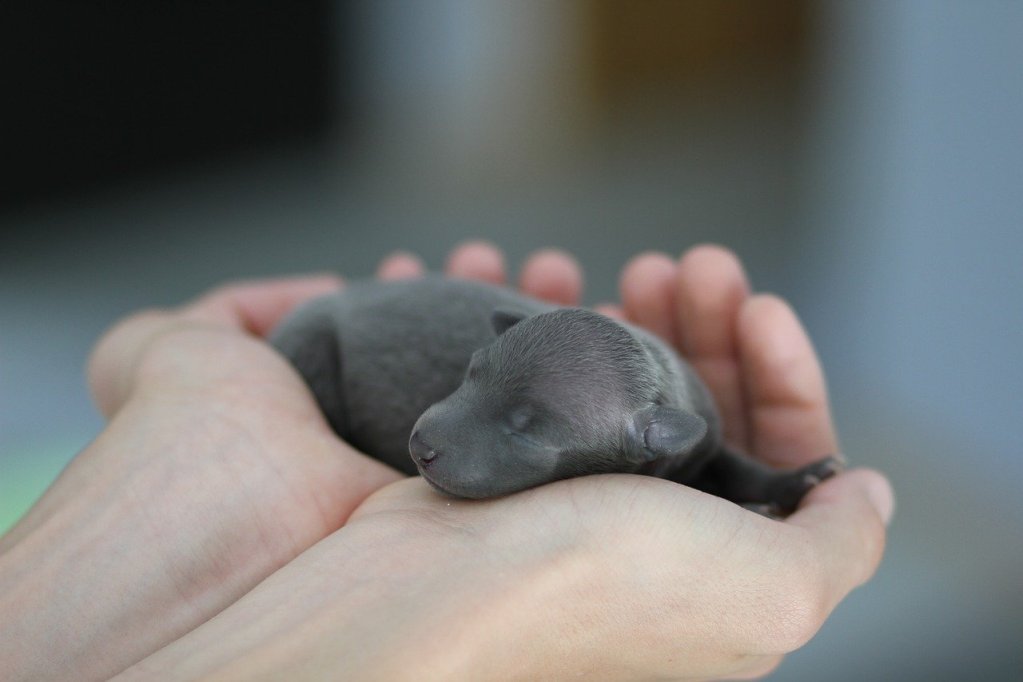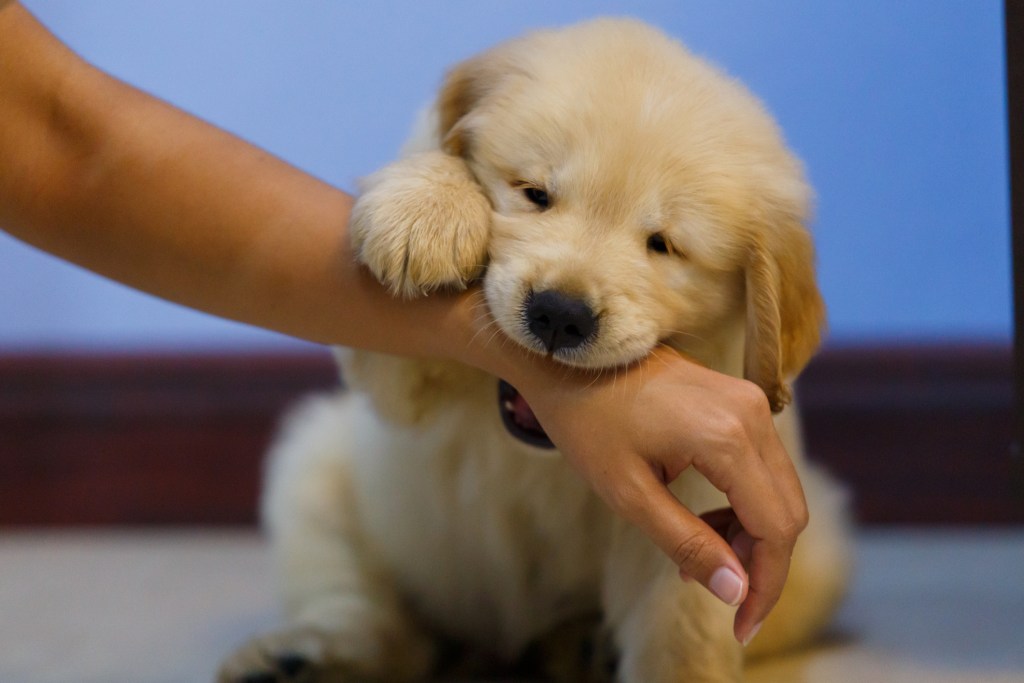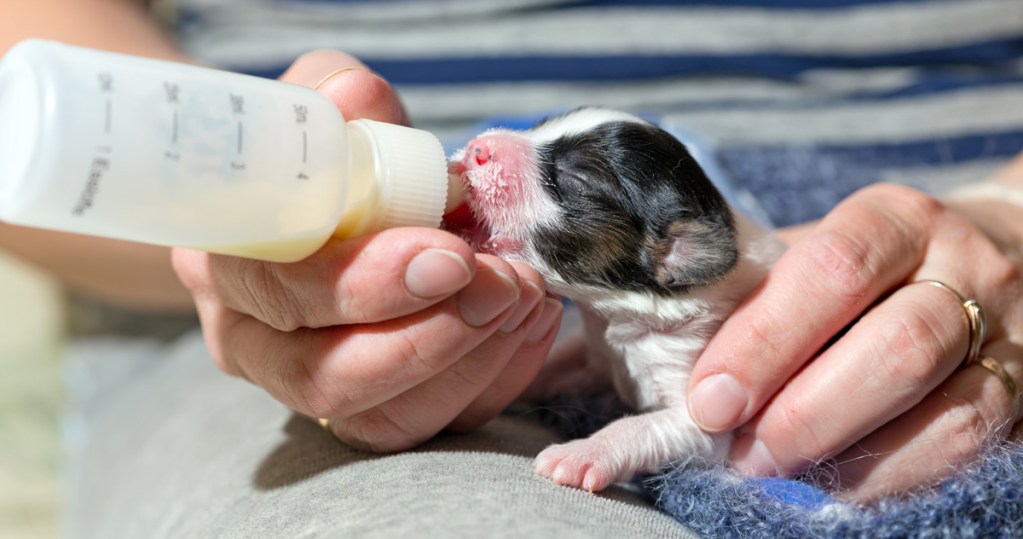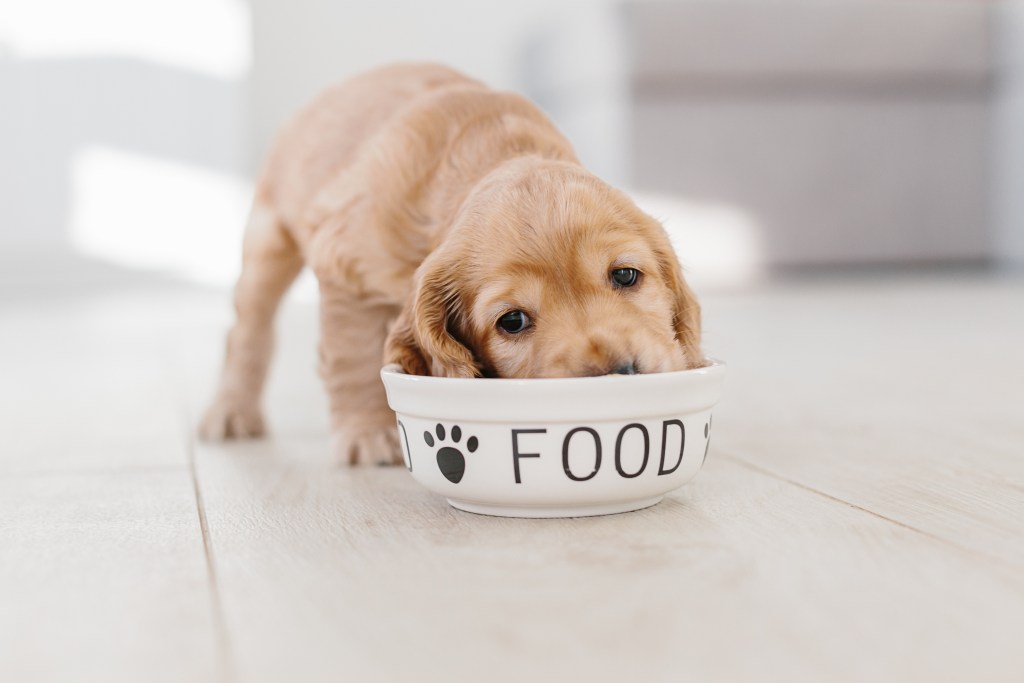How Often to Feed a Puppy Just Born
How much should newborn puppies eat? Follow this newborn puppy feeding chart
Here's what you need to know about feeding newborn pups
Whenever possible, newborn puppies should eat their mother's nutrient-rich milk, which helps protect them from illness while their immune systems develop. It's the perfect food! However, sometimes circumstances prevent this. Maybe mom doesn't produce enough milk, or the milk is infected. In these scenarios, pet parents have to step in to help feed the babies. Orphaned puppies need round-the-clock feedings from human surrogate moms. It's important to follow a newborn puppy feeding chart to ensure your pups are getting adequate nutrition.

How to tell if nursing puppies aren't getting enough to eat
Veterinary experts say that newborn puppies should gain 5% to 10% of their body weight daily — doubling their body weight in a week. Jerry Klein, the chief veterinary officer at the American Kennel Club (AKC), recommends using a baby scale to monitor the weight gain of each puppy. Puppies should be weighed at birth, and again at 12 hours, 24 hours, 48 hours, 3 days, 5 days, and 7 days. If everything is going well, all puppies should show a gradual weight gain.
When newborns cry during or after nursing, it generally means that they aren't getting enough milk. Alternatively, mom's milk could be infected, or it might indicate that they are sick. Excessive crying requires an emergency vet visit for mom and baby.

How often do newborn puppies eat?
Newborn puppies typically nurse from their mom about every two hours. As they grow older, the time between nursing increases, and by four or five weeks, mom starts weaning her puppies. You'll have to step in to make up the difference and start introducing some puppy chow. They typically transition to all solid food at around eight weeks of age.

How often should you feed a newborn puppy?
When mom's milk supply isn't adequate to support the healthy growth of her puppies, VCA veterinary experts recommend supplemental feedings one to six times per day. Newborn orphaned puppies less than 2 weeks old should be fed every three to four hours, while 2- to 4-week-old puppies will do well being fed every six to eight hours. Don't forget, the feedings need to be equally spaced over 24 hours.

What to feed newborn puppies without their mom
Veterinarians say that the best replacement milk for puppies is commercial puppy milk formula. Best Friends Animal Society recommends the Esbliac puppy milk replacer when feeding orphan puppies. Experts say that any puppy milk replacer should contain optimal levels of omega-3 fatty acid and DHA (docosahexaenoic acid), a nutrient that is important for the development of their brains and eyes. Containers will come with feeding instructions — follow these carefully. Just as with newborn babies, the milk can be tested on your forearm before feeding. You want it about the same temperature as your skin or only slightly warmer. Otherwise, they'll burn their little tongues trying to slurp it down.
As you nourish your newborn, be aware that overfeeding may put your puppy at risk of aspiration, vomiting, diarrhea, and gas build-up in the stomach and intestines. Maddie's Fund provides a helpful newborn puppy feeding chart broken down by calorie requirements and formula measurements based on the puppy's weight.

How to feed a newborn puppy
- A puppy nursing bottle is the best way to feed your bundle of joy. The size of the hole in the nipple is crucial to successful bottle feeding, according to experts at Best Friends. To check this, turn the bottle upside down and gently squeeze: If the milk drips freely, the hole is too large. That means the puppy could take in too much and risk inhaling it into their lungs. If the hole is too small, the puppy has to work too hard to get nourishment and may refuse to nurse. You'll know that the hole is the proper size when the milk comes out one drop at a time.
- Puppies shouldn't be fed on their backs because they don't have a well-developed gag reflex and there's a danger that fluid may go down their windpipe and enter their lungs. Instead, place the puppy on his stomach with his head level as if he was nursing from his mom.
- Open the puppy's mouth gently with one finger and place the tip of the nipple on his tongue. If he won't eat, try stroking him. Tilt the bottle up slightly to prevent your puppy from inhaling too much air. Do not force the puppy to nurse, or allow him to nurse too fast.
- After each feeding, you'll have to burp him by holding him against your shoulder and gently patting his back.
According to the AKC, some orphan puppies take a little time to get the knack of the sucking part of feeding. If a pup doesn't drink from the bottle you'll need to work with a veterinarian to tube feed and get him started. In addition, for the first 2 weeks, orphan pups should be stimulated to urinate and defecate after each meal. This is done by rubbing the area between the back legs with a warm wet cotton ball. This action mimics the licking mom does to make her puppies go potty.
Newborn puppies will rely on mom's milk or bottle feedings until they are weaned onto solid food at around seven or eight weeks. And while caring for newborns is certainly time consuming and a lot of work, it's also incredibly rewarding. Nothing will bring you more joy and satisfaction than watching those fur babies thriving under your loving care.
Editors' Recommendations
- Thyroid issues in dogs: These are the telltale signs you should consult a vet
- Aquatic turtles: Care and feeding basics every Testudine enthusiast needs to know
- Diabetes in dogs: The risk factors and symptoms all pet parents need to know
- How long can cats go without food or water? It's less time than you think
- How much water should a dog drink? You might be surprised by the answer
Source: https://www.pawtracks.com/getting-started/newborn-puppy-feeding-chart/
0 Response to "How Often to Feed a Puppy Just Born"
Post a Comment